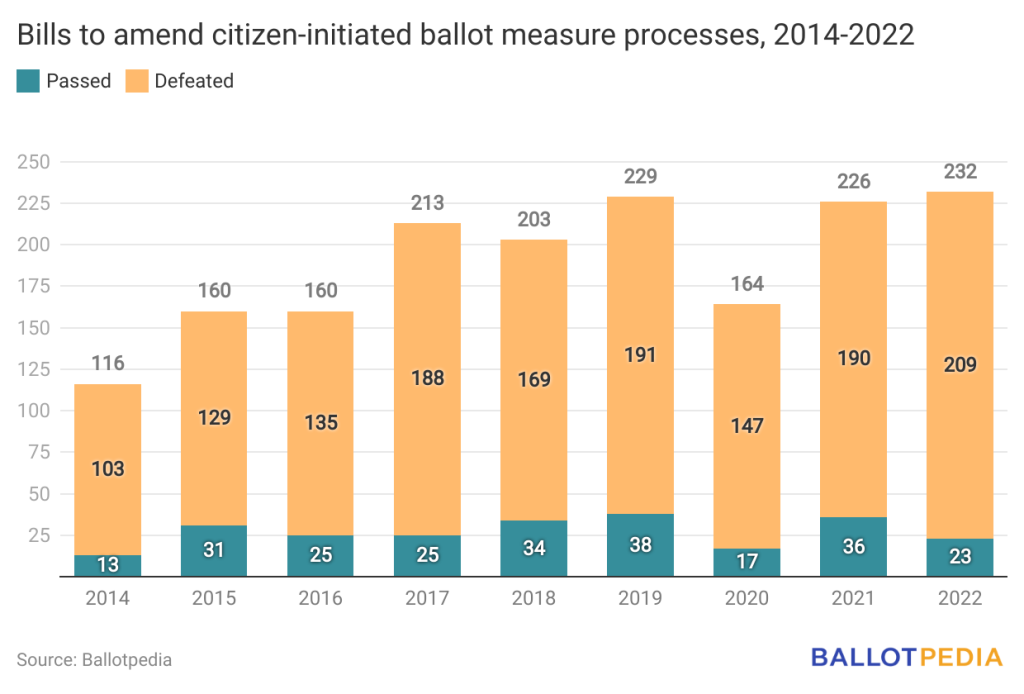In 2022, state legislators introduced at least 232 bills to change citizen-initiated ballot measure processes. Of the 232 legislative proposals, 23 (9.91%) were enacted into law.

In 2021, for comparison, 226 bills were introduced and 36 (15.93%) were enacted. While the number of bills introduced in 2022 was higher than each year from 2014 to 2021, the number of bills passed into law was lower than the average. Between 2014 and 2021, an average of 28 bills were enacted into law each year.
Examples of bills passed in 2022 include:
- Florida House Bill 921 (HB 921) was passed in March 2022. Gov. Ron DeSantis (R) signed the bill on April 6. HB 921 would have prohibited out-of-state donors from giving more than $3,000 to support or oppose an initiative during the signature-gathering phase. The limit could have made the signature gathering process more difficult to fund. A federal district court struck the bill down as unconstitutional.
- Florida House Bill 921 (HB 921) was passed in March 2022. Gov. Ron DeSantis (R) signed the bill on April 6. HB 921 would have prohibited out-of-state donors from giving more than $3,000 to support or oppose an initiative during the signature-gathering phase. The limit could have made the signature gathering process more difficult to fund. A federal district court struck the bill down as unconstitutional.
While the number of enacted laws decreased from 2021 to 2022, the number of legislatively referred measures related to the initiative process increased from two in 2018 to four in 2020 to six in 2022.
There were five constitutional amendments in 2022 to change the initiative process. Voters approved two of the changes and rejected three. The amendments were on the ballot in Arkansas, Arizona, and South Dakota.
- Arkansas Issue 2: Rejected. Issue 2 would have required a 60% vote to approve ballot initiatives.
- Arizona Proposition 128: Rejected. Proposition 128 would have allowed the Legislature to amend or repeal voter-approved ballot measures that contain provisions ruled unconstitutional by the Arizona Supreme Court or U.S. Supreme Court.
- Arizona Proposition 129: Approved. Proposition 129 requires citizen-initiated ballot measures to embrace a single subject.
- Arizona Proposition 132: Approved. Proposition 132 requires a 60% vote to pass ballot measures to approve taxes.
- South Dakota Amendment C: Defeated. Amendment C would have required a 60% vote to pass ballot measures that increase taxes or fees or increase appropriations by $10 million or more in the first five fiscal years.
In Colorado, the Legislature referred a statute, Proposition GG, to the ballot. Voters approved Proposition GG, which requires a table showing changes in income tax owed for average taxpayers in certain brackets to be included in the ballot title for initiated measures.


